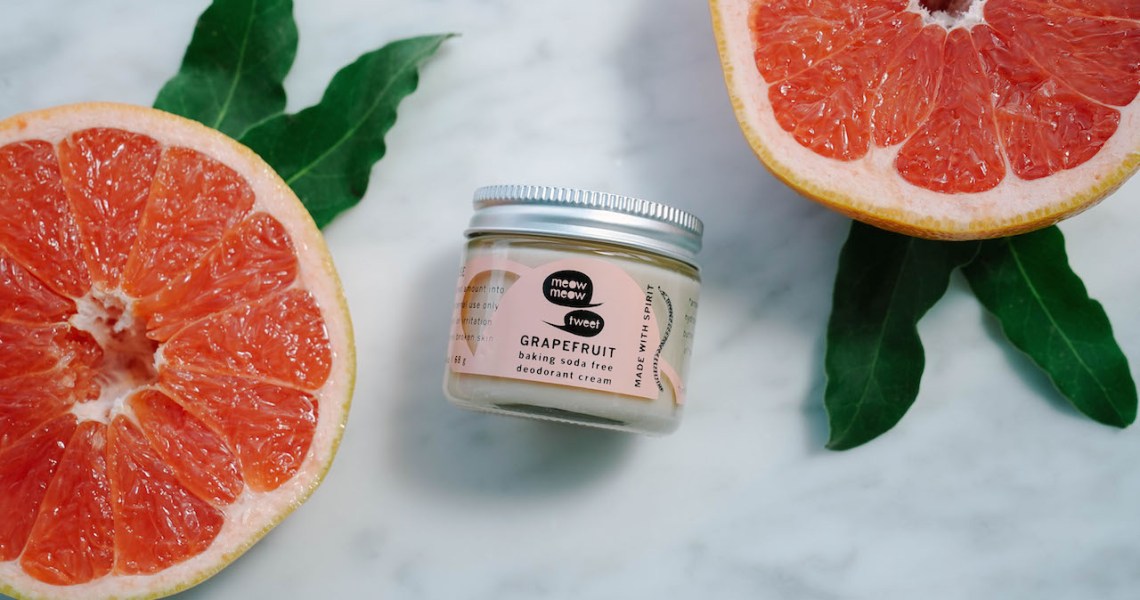Nine-year-old clean beauty brand Meow Meow Tweet is building out an Amazon indie storefront.
Since Amazon launched its indie beauty shop in June, it has become an important retail consideration for many brands, including Honest Beauty and C’est Moi, both of which have curated indie storefronts. Meow Meow Tweet began listing its natural deodorants on Amazon in August 2018, and now the brand plans to build an official storefront to reach more customers and provide them with a better brand experience on the retail platform.
It will add its facial products to Amazon in February (currently the brand only has deodorant and soaps) and will hire a dedicated staff member in the year’s first quarter to build and then manage the storefront. Amazon sales currently account for 15 percent of monthly Meow Meow Tweet sales. The company was expected to hit $1 million in revenue in 2017, and its annual sales are growing 12-15 percent, according to Tara Pelletier, co-founder of Meow Meow Tweet.
The company sells through its own e-commerce website, which accounts for 25 percent of overall sales, and it has 250 wholesale partners, including Target, Credo Beauty, and international and domestic boutiques.
To build out the storefront, the brand is looking at how it can be more reflective of its own e-commerce site, said Pelletier. “[The store] can grow and become more worthwhile because it will be exponential growth; we will have more sales than the amount of labor dedicated to it,” she said. Pelletier plans on adding to the storefront high-resolution photography of products and editorial content around the brand’s sustainability and ingredients, as well as customer testimonials.
Amazon requires brands to handle inventory and customer service through its own website portal, meaning brands cannot direct tasks, inquiries or complaints to their in-house staffs. Therefore, the team must operate outside of its usual workflow in order to keep up with the storefront. Currently, the brand employees six people (including Pelletier and her co-founder Jeff Kurosaki), and the Amazon duties are divided among three people, but that will change when it hires someone in the first quarter.
Despite the tough navigation of Amazon and the placement of the indie shop in particular (the indie beauty shop is not located on the navigation bar, unlike the luxury beauty shop), brands like Hero Cosmetics and Verb have found it useful to their businesses for various reasons. Hero Cosmetics, in particular, launched on Amazon in September 2017 before going on to sell its own e-commerce site in June 2018, and Verb was motivated to sell through the marketplace in order to clamp down on fake products and unauthorized resellers.
Health, personal-care and beauty products are the third-fastest-growing category — after food and beverage, and apparel and accessories — according to retail research group eMarketer; sales of those products were expected to reach $16 billion at the end of 2018, marking a nearly 38 percent increase over 2017.
“Amazon might not seem creative, but it allows someone in a suburban or rural area who doesn’t have access to our natural products to get them in two days and feel they have the ability to get something that they need,” Pelletier said “We don’t say omnichannel, although that’s the approach. We say ‘accessibility,’ in terms of both location and price point. Without cutting corners, we are currently as accessible with the price point as we can be, and we’re finally getting there [in terms of] location.”




